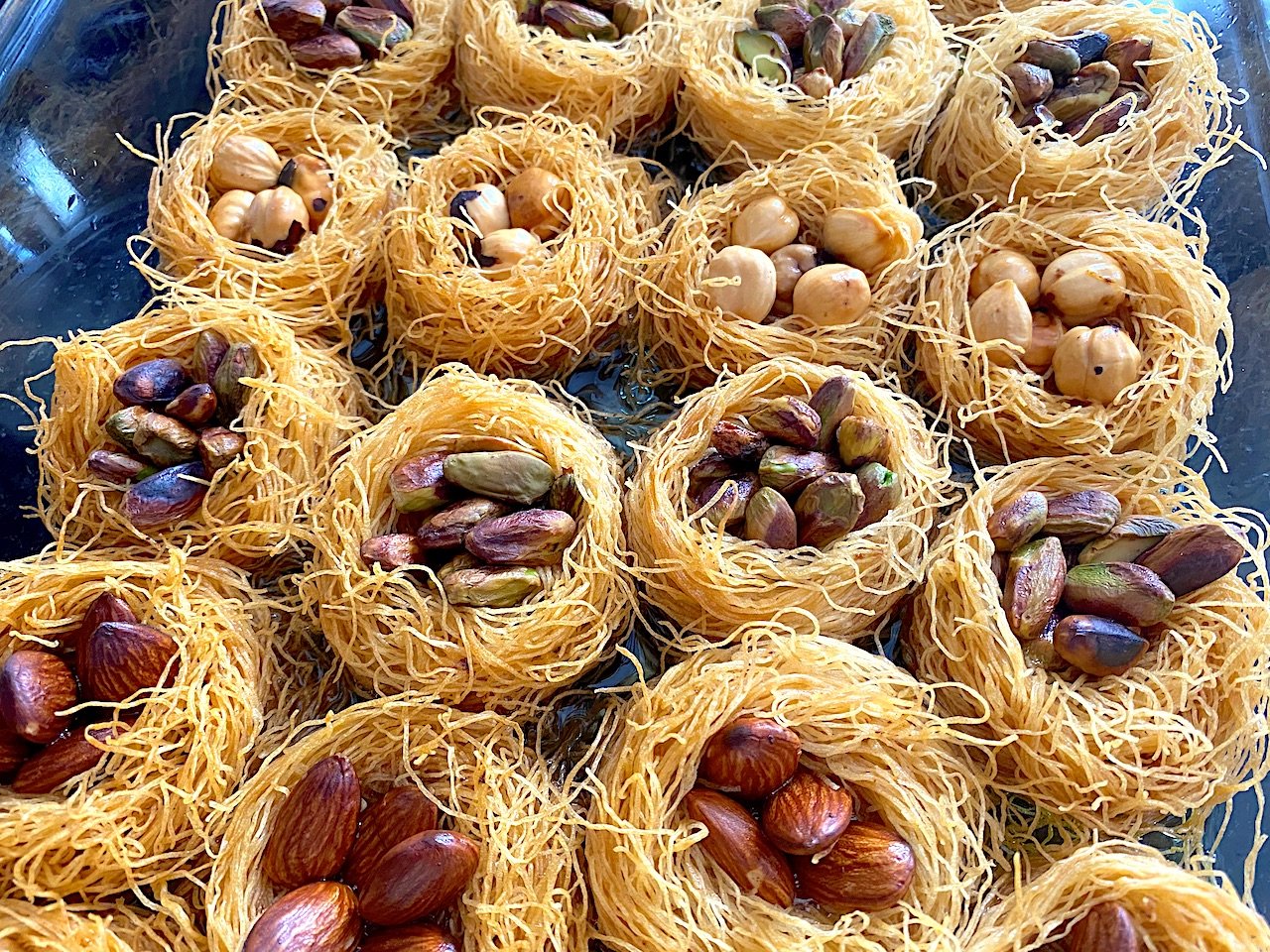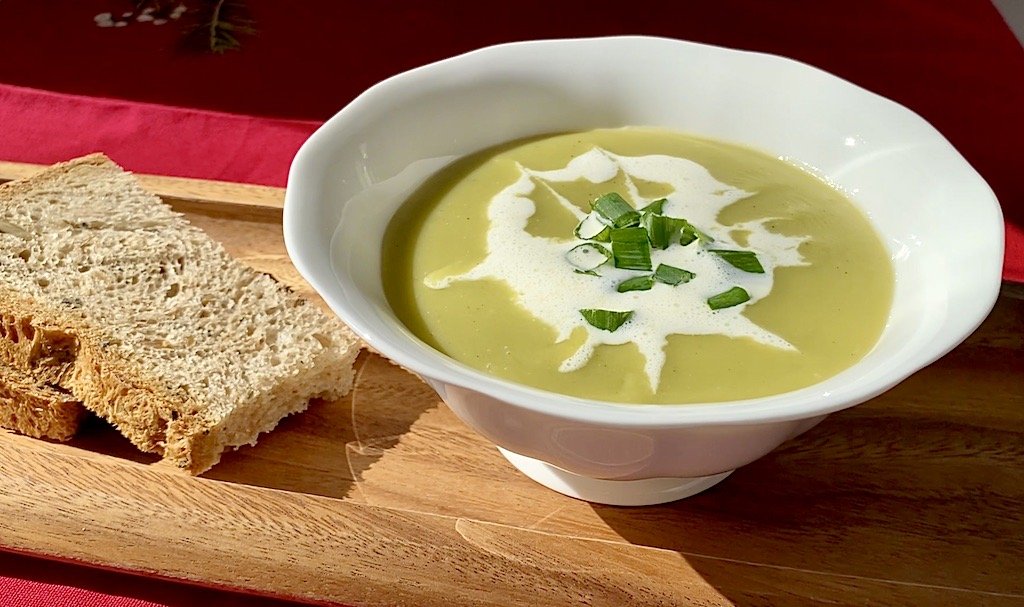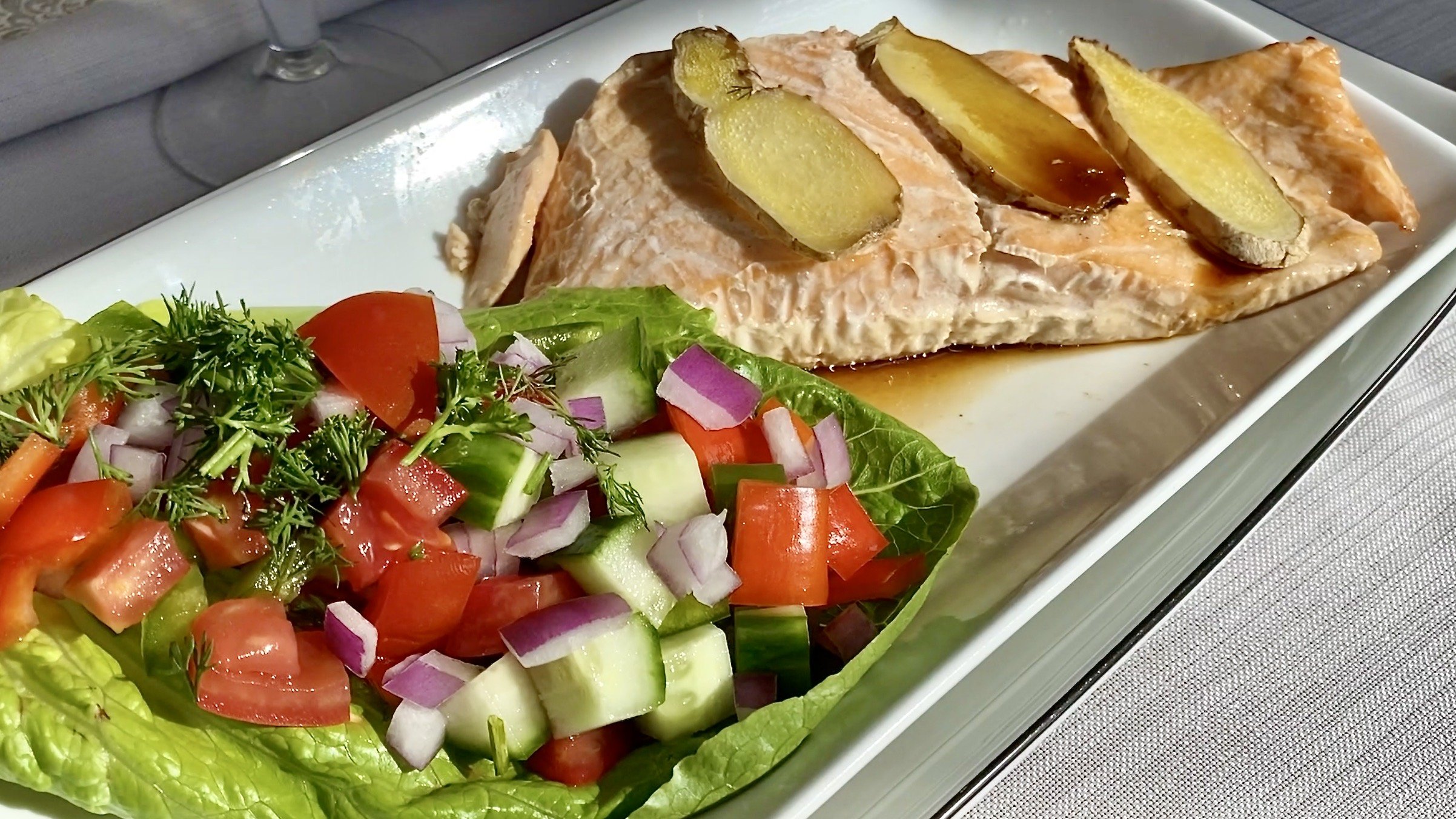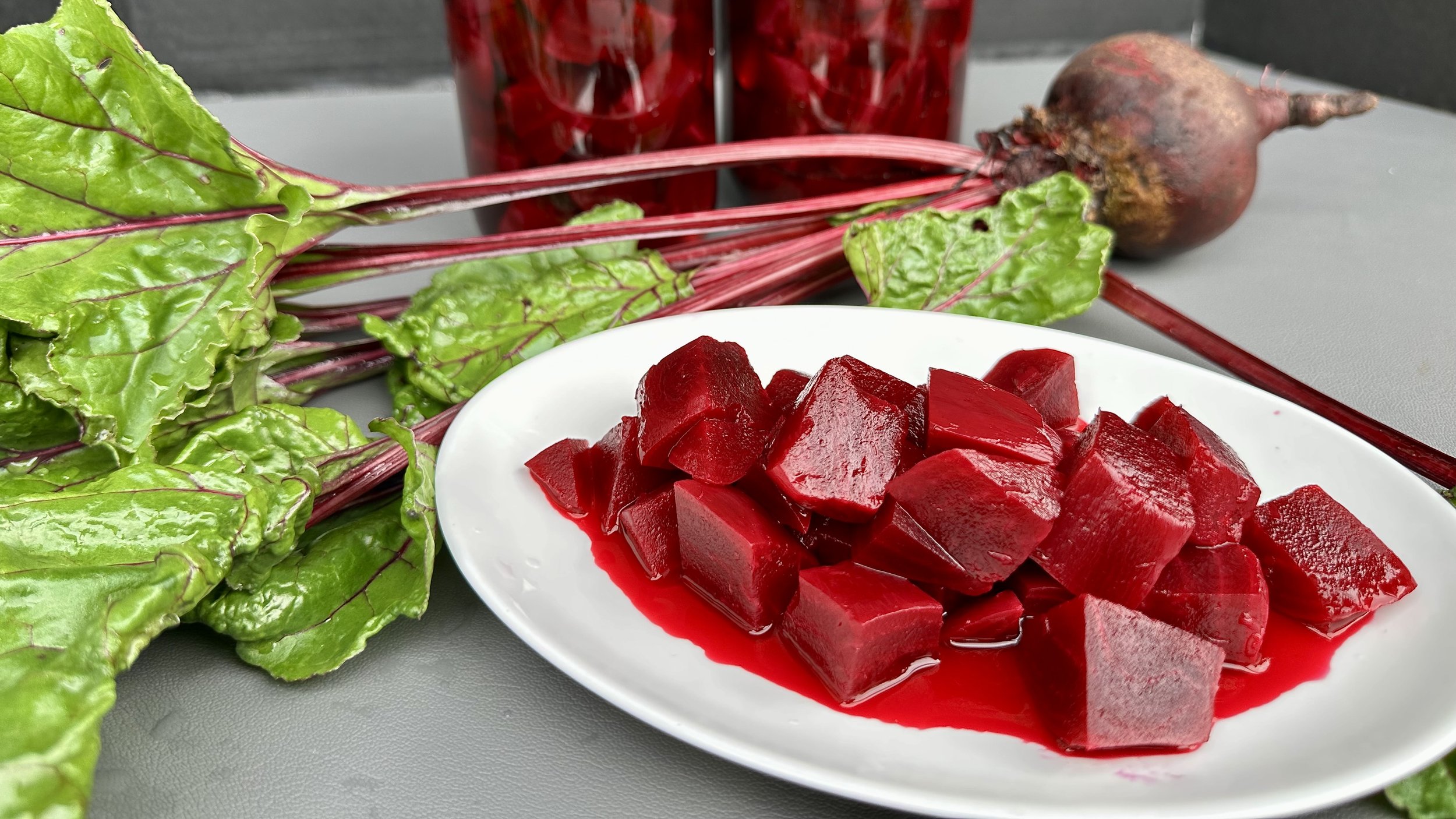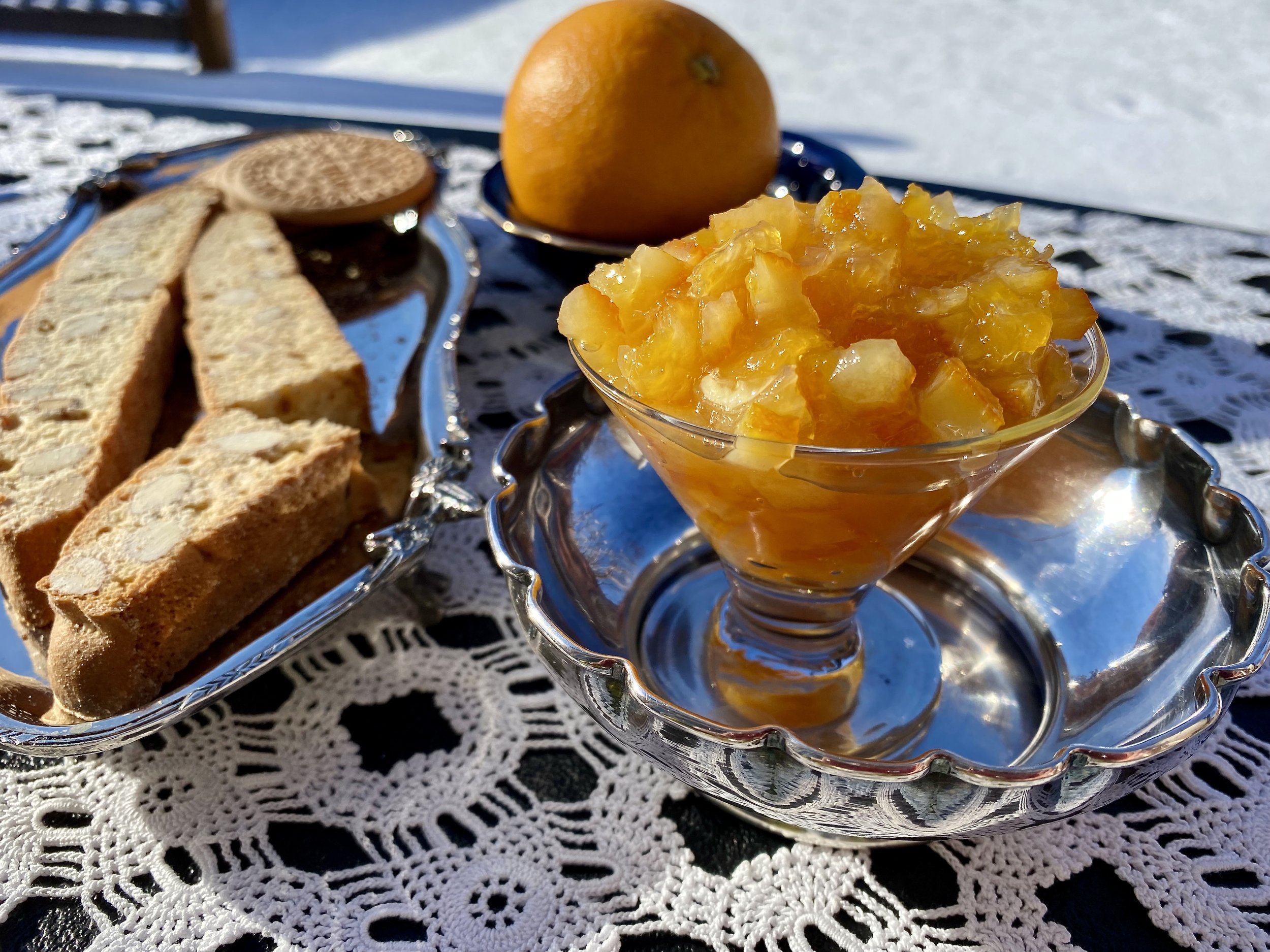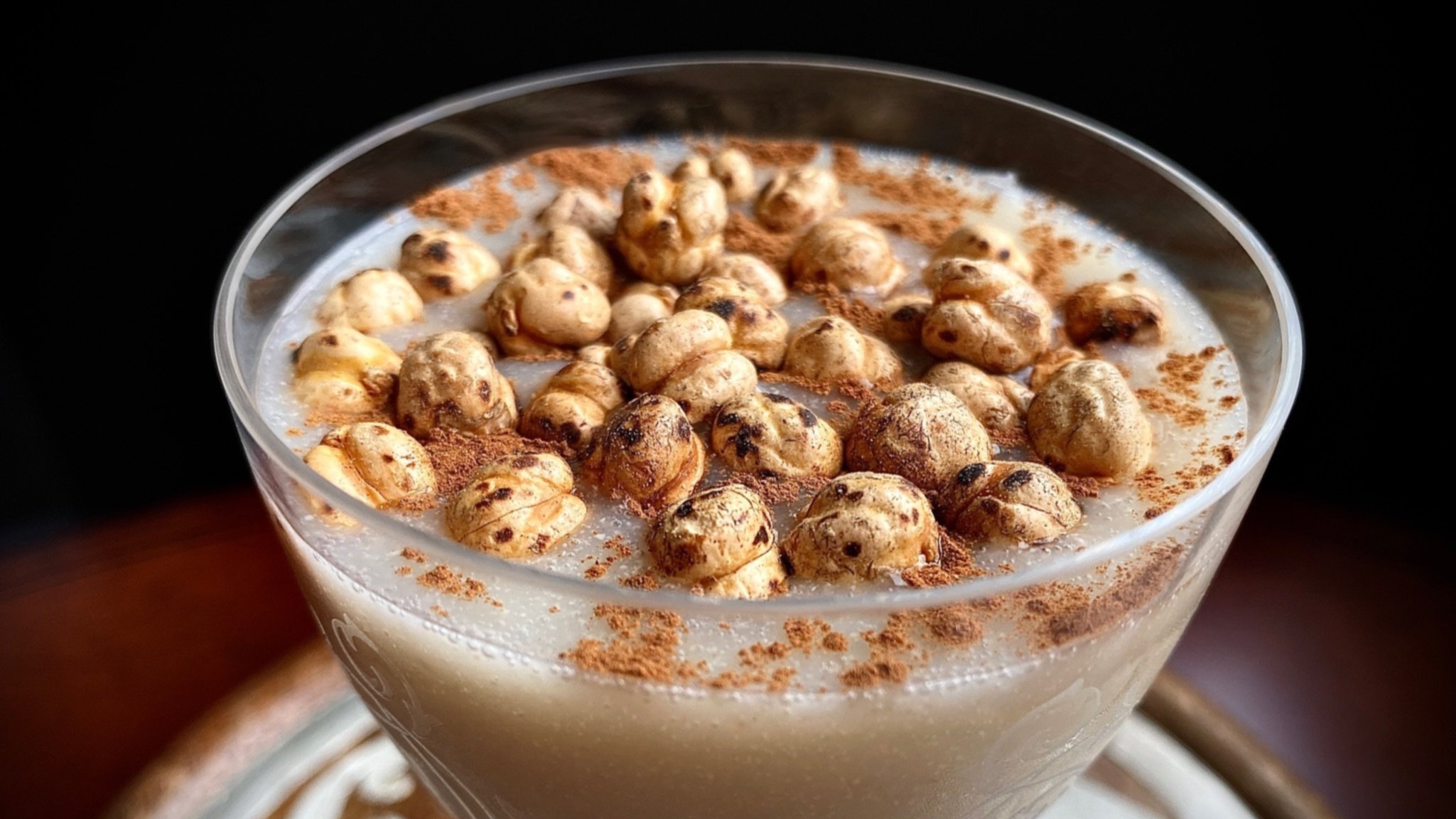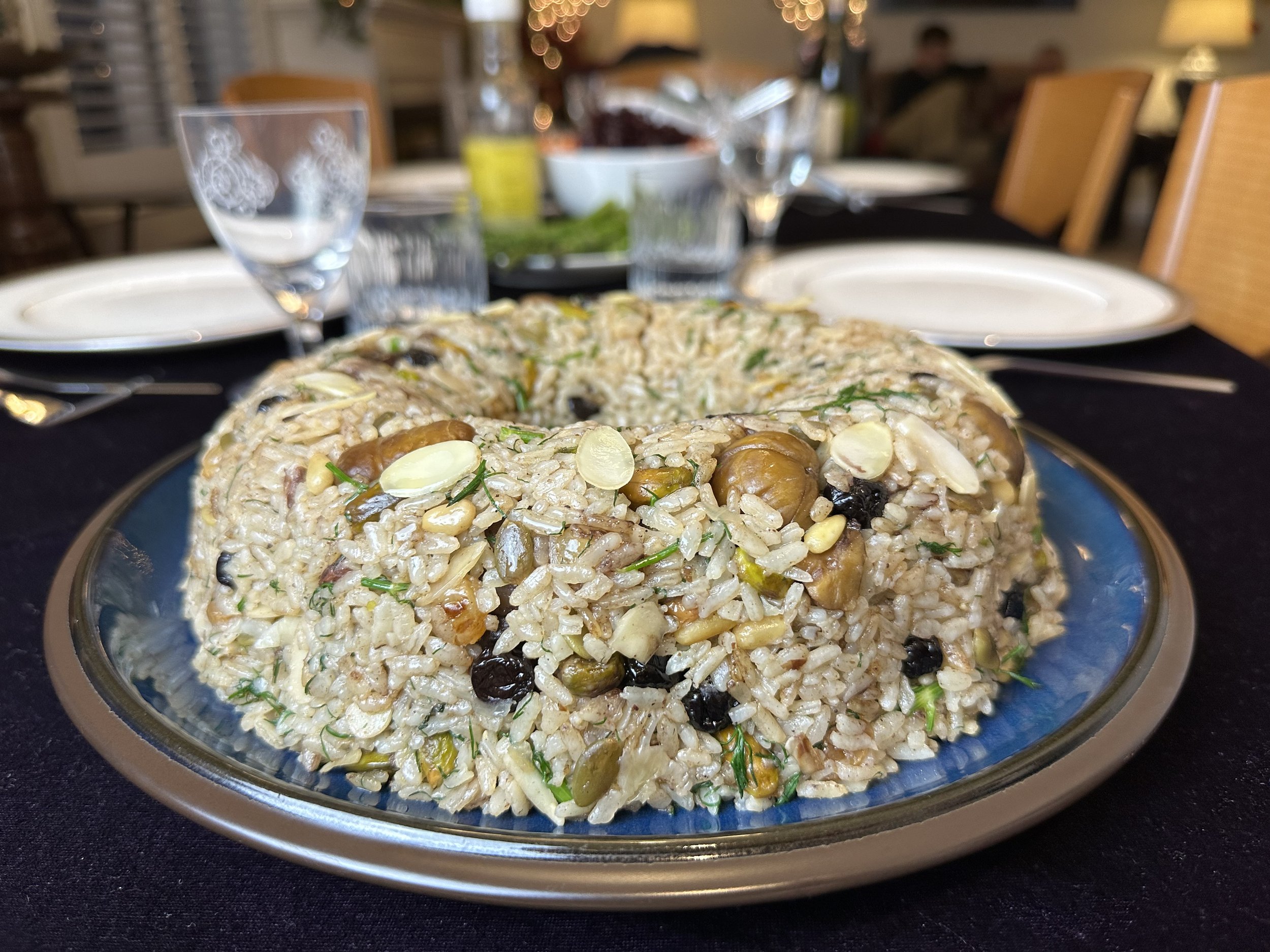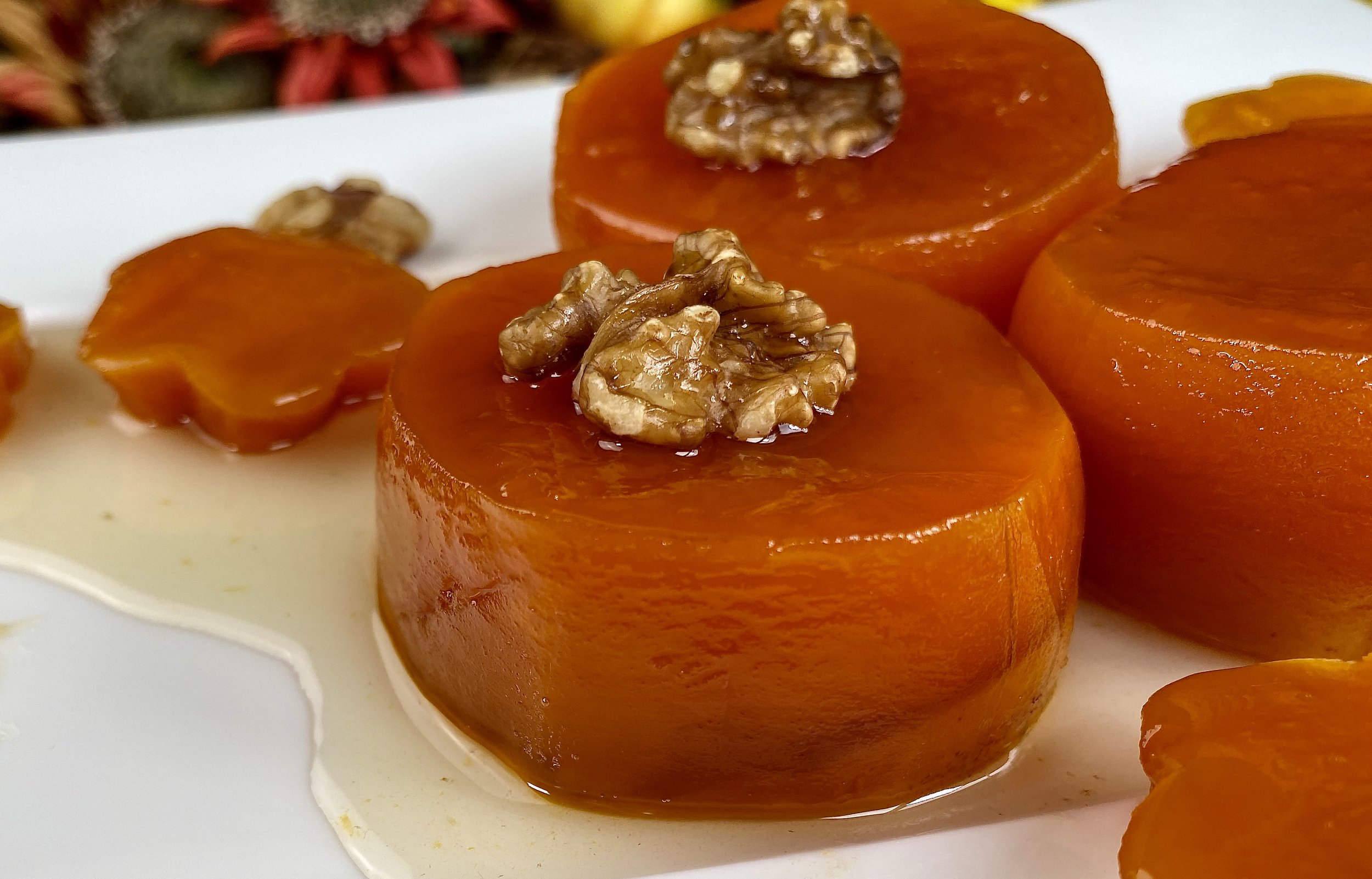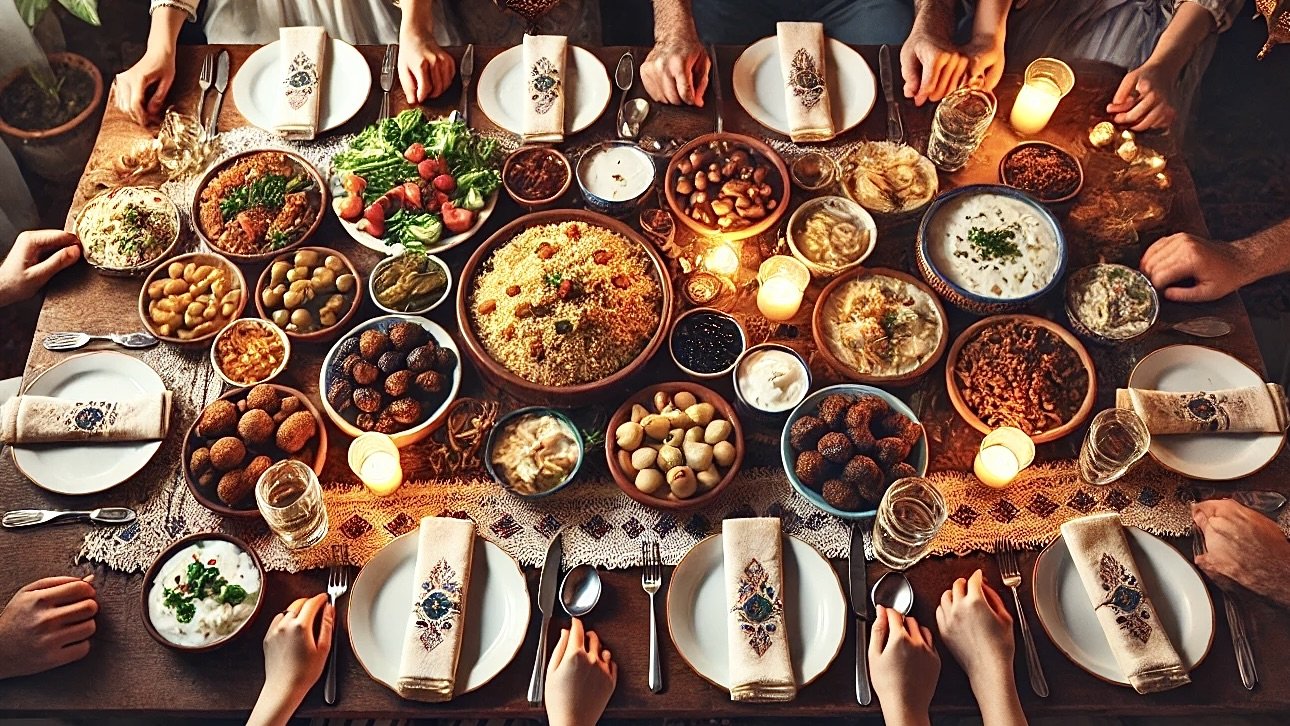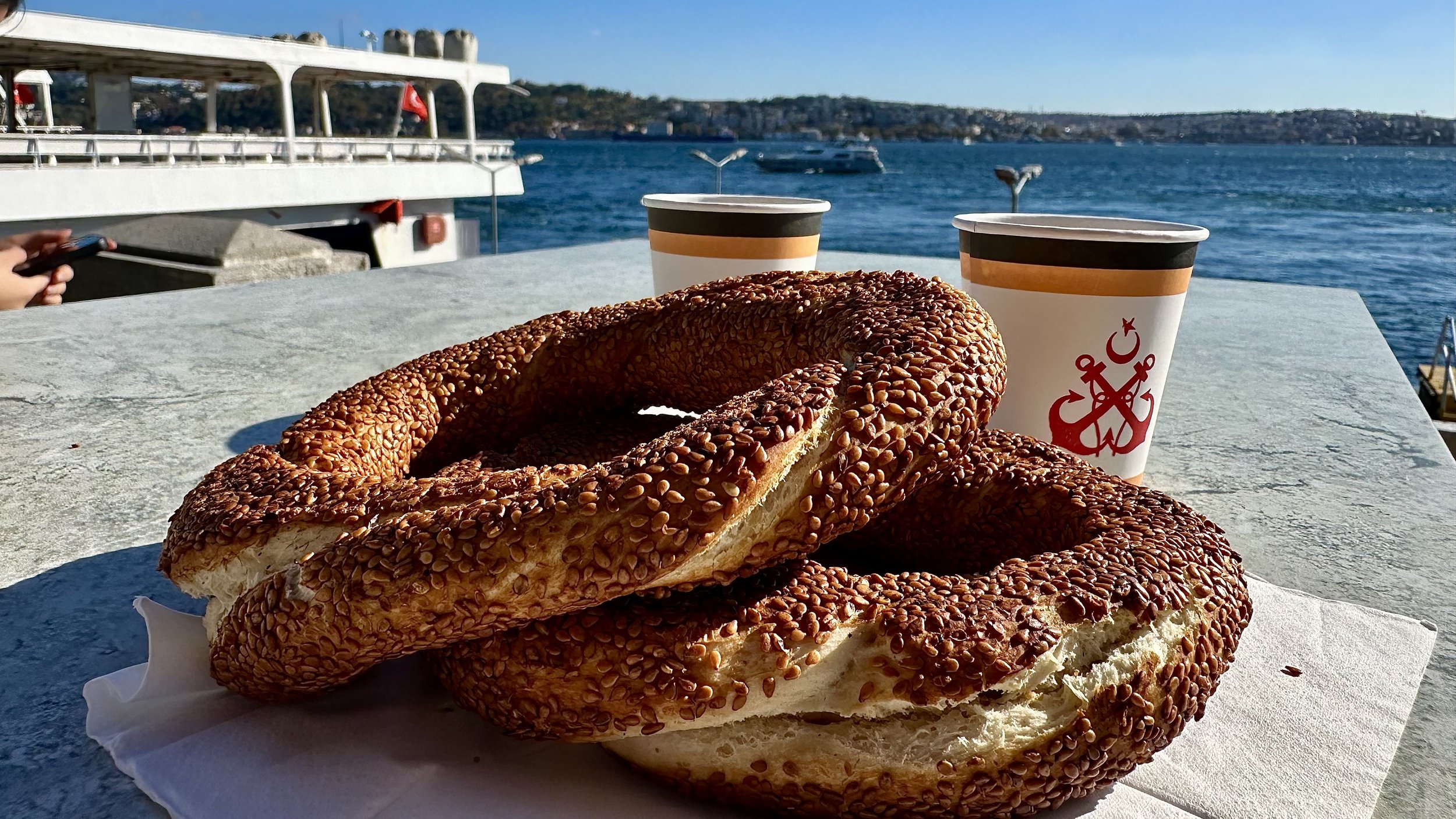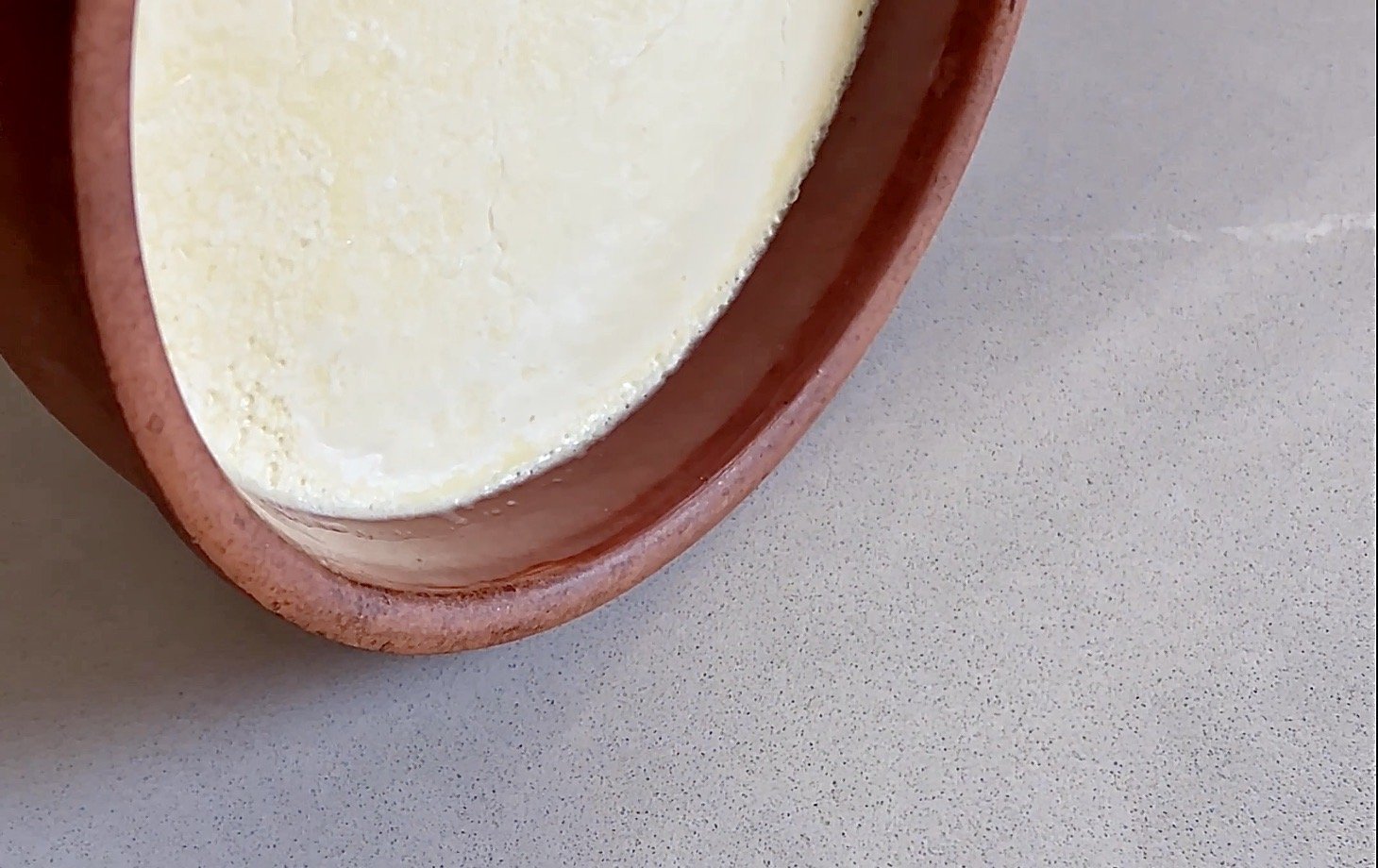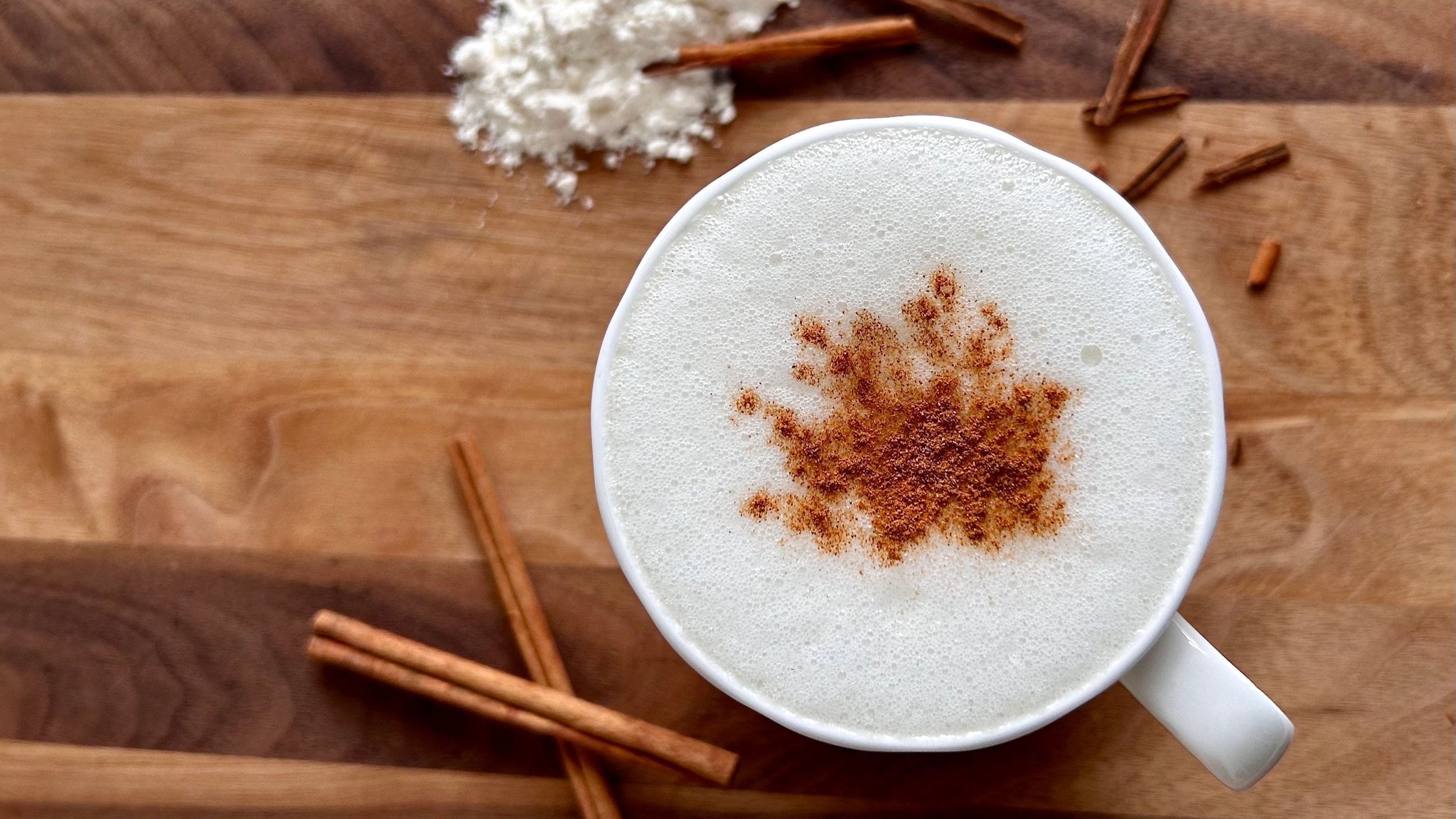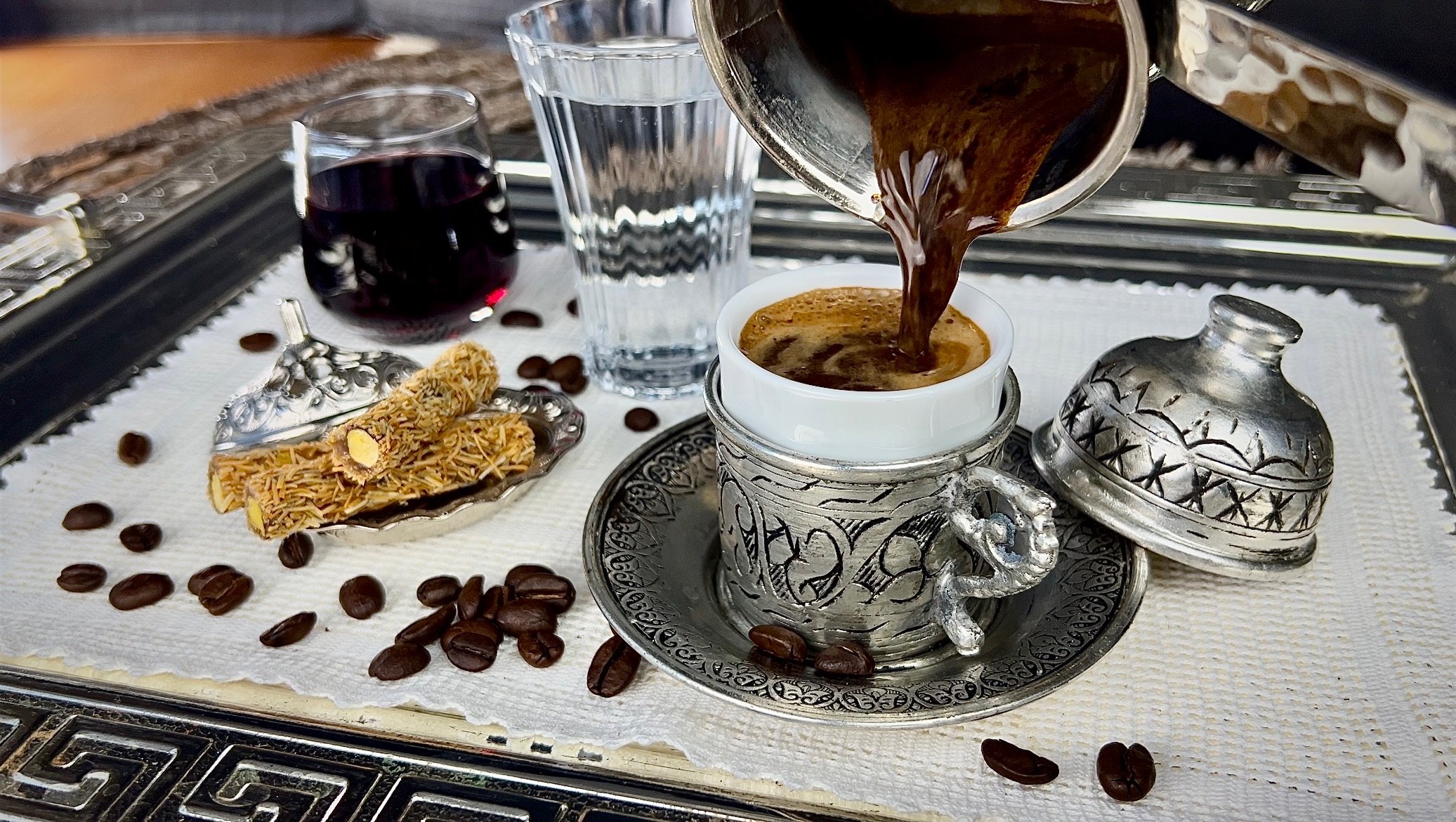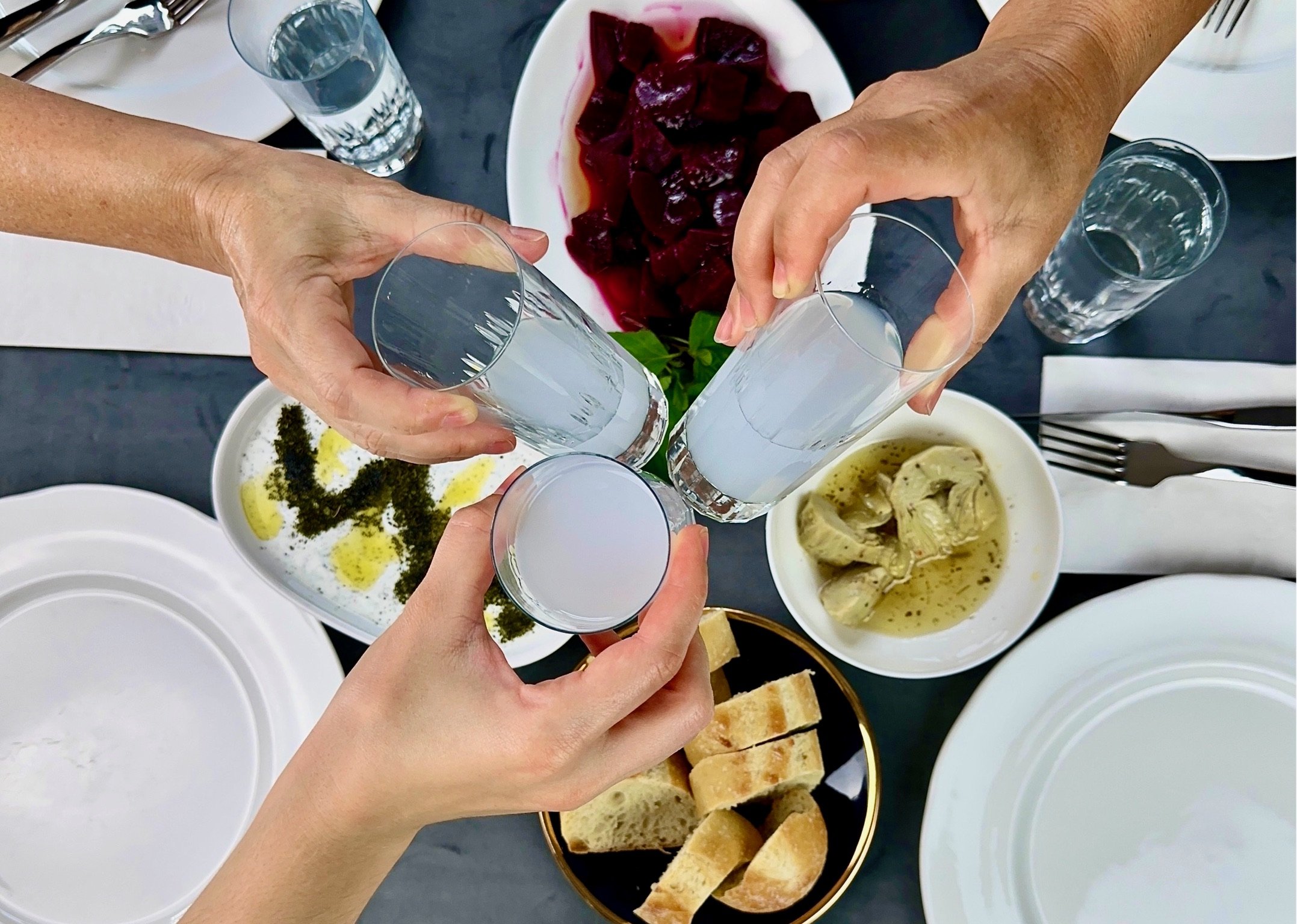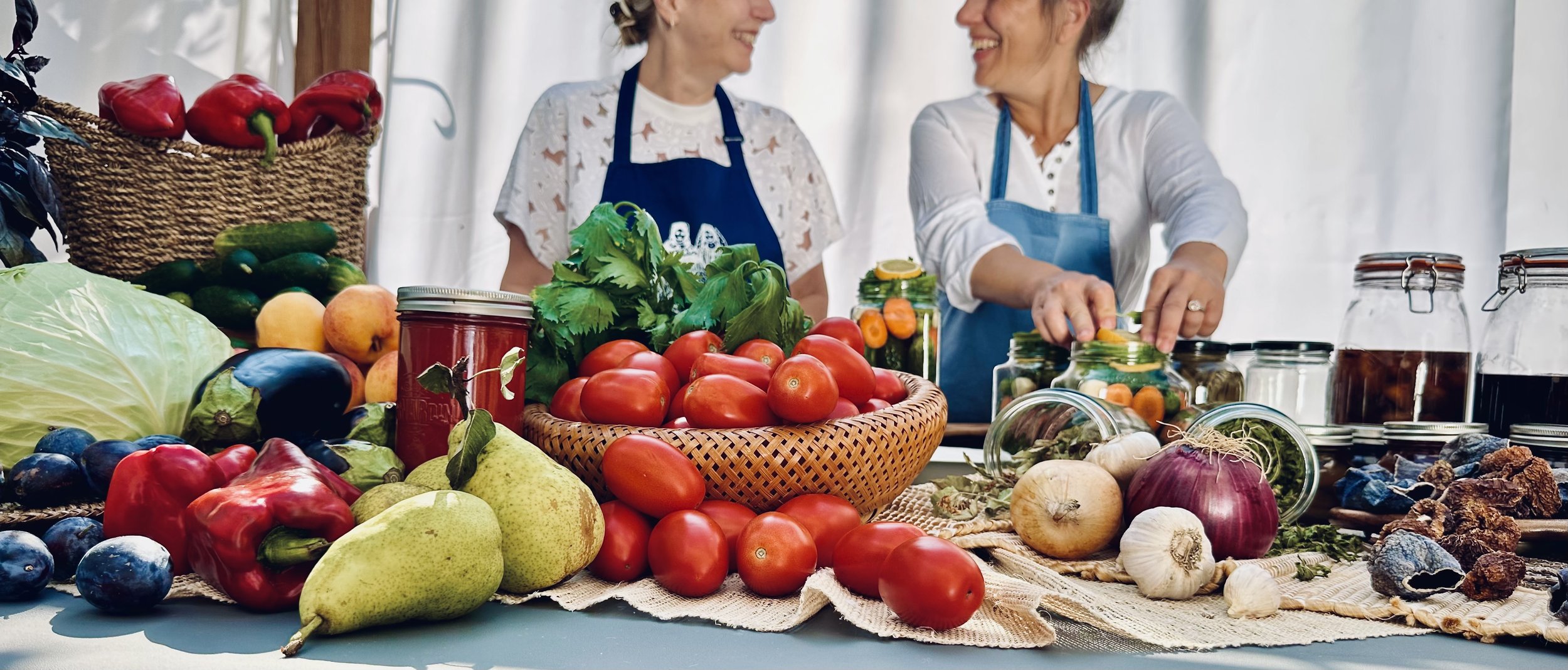Hallowed Fig Cookies
HALLOWED FIG COOKIES: EMBRACING THE ESSENCE OF MOLASSES
Note: By clicking on this video, you allow third parties (YouTube and Google) to access your data. Visit our privacy policy for more info.
The first bite is a contradiction; crisp and delicate, yet yielding to a tender, molasses-kissed crumble.
At the heart of it, a burst of fruit, rich with cinnamon and the deep sweetness of autumn’s harvest. These cookies long for a steaming glass of tea, whispering of golden-lit fall afternoons, of warmth that lingers beyond the season.
This is no mere coincidence. Like many of its kind, this cookie carries the weight of twelve thousand years of agriculture, the generosity of the Mediterranean sun, and the refined tastes of Istanbul’s storied kitchens.
Golden Turkish grapes, crushed and simmered, thickened with roasted white clay—grape molasses, a craft perfected over millennia, now a pillar of Anatolian nourishment.
Towering fig trees, their leaves wide and waxy in the heavy Mediterranean air, bore fruit too abundant to be eaten all at once. The ripest, the sweetest, the purest were dipped in oak ash water, dried under the healing sun, and stored away for winter’s hunger.
Amber-skinned apples, blushing red and green, were plucked from Istanbul’s orchards, cradled in crates of straw to last the cold months ahead.
Walnuts, shaken from their branches, lay beneath the autumn sky, drying in its final warmth before retreating to the pantry’s embrace.
Then winter arrived. And from the storerooms, treasures emerged, each ingredient, a miracle of patience and care, waiting for a new purpose. The kitchen fairies never settled for what was; they sought more. More strength for the children, more immunity for the elders. More joy, summoned by the scent of something wonderful baking, drawing the family together.
This cookie is the fruit of that moment. In our kitchens, food is medicine, and healing comes from the art of good eating. This is no ordinary cookie; it is an elixir, where flavour and nourishment entwine in perfect harmony.
Taste it. Let it bring you comfort, let it bring you health.
Ingredients
Dough
250 g butter, softened
½ cup grape seed oil (or any refined vegetable oil)
1 egg yolk
½ cup yogurt
Zest of ½ lemon
1 tbsp baking powder
3½ cups flour
Filling
2 medium apples (200-250 g), peeled, cored, and diced
4-5 dried figs (100 g), finely chopped
2 tbsp water
¼ tsp cinnamon (optional)
1 tbsp sugar (optional)
Decoration
1 egg white
1Peel cup walnut finely crushed
1 cup grape molasses
Directions
PREPARE THE FILLING
Place the diced apples in a small pot with 2 tbsp of water. Simmer over low heat for 15 minutes until soft.
Add the finely chopped dried figs to the softened apples. Stir well.
If using cinnamon and sugar, mix them in at this stage.
Continue simmering for another 10 minutes, then remove from heat and let cool completely. the wine leaves from the stems. Group 10-15 leaves together and place them into a wide pot.
Mix the water and salt in a pot. Boil for 5-8 minutes, then pour over the arranged wine leaves. Cover the pot with a lid and let the leaves cool down to room temperature.
Take a 1 L clean jar with a fitted lid.
Roll each group of 10-15 wine leaves together and place into the jar. Make sure to stack the rolls tightly to minimize air pockets.
Pour the brine into the jar and submerge all the leaves in the brine. Add 2-3 tbsp of pickling salt over the leaves and cover the jar tightly.
You can keep the leaves fresh for 1-2 years without opening the jar.
MAKE THE DOUGH
In a large bowl, combine the egg yolk, grape seed oil, yogurt, lemon zest, and softened butter. Mix until smooth.
Add 2 cups of flour and knead until well incorporated.
Mix in the baking powder and another cup of flour. Continue kneading.
Gradually add the remaining ½ cup of flour, adjusting as needed, until the dough is soft but holds its shape.
SHAPE AND FILL THE COOKIES
Portion the dough evenly before shaping to ensure uniform cookies.
Lightly whisk the egg white with a pinch of salt.
Take a portion of dough and flatten it in your palm or on a plate. Place a teaspoon of the filling in the centre, then seal the edges to enclose the filling. Shape into a round ball.
Dip each cookie first into the egg white, then coat with crushed walnuts.
Arrange on a baking tray, leaving space between them for expansion.
BAKING
Bake in a preheated oven at 380°F (190°C) for 30-35 minutes, or until golden brown.
Let the cookies cool on the tray for 5 minutes. While still warm, drizzle each with 1-2 teaspoons of grape molasses.
Allow the molasses to absorb fully before transferring to a serving plate.
SERVING
These cookies are a delightful addition to breakfast tables, tea gatherings, or school lunches. May these cookies bring warmth and joy to your home! Enjoy their nostalgic warmth and wholesome flavour.
Afiyet Olsun!
[Notes from the Kitchen]
When and How to Add Baking Powder: Adding baking powder after some flour has been mixed in prevents premature activation, ensuring a well-risen cookie.
Flour Absorption: Different types of flour absorb moisture differently. Add the last ½ cup gradually to maintain a soft yet stable dough.
Uniformity Matters: Evenly portioned dough helps cookies bake consistently, and at the same rate.
Spacing on the Tray: These cookies expand slightly while baking, so leave enough space between them.
Oven Variations: Baking times may vary depending on your oven. Check for an even golden colour and a fragrant aroma.
Bayram was more than a holiday; it was a feeling—a time when homes filled with the scent of baklava, laughter echoed through bustling kitchens, and new shoes waited eagerly…
As the sun dips below the horizon, a distant cannon shot and the call to prayer signals the end of the fast. Istanbul’s streets come alive with the scent of freshly baked Ramazan pidesi…
From the spices of the arid southeast to the vegetarian dishes of the Mediterranean…This is the tale of how climate shapes cuisine.
The warm scent of freshly baked simit drifts through Istanbul’s winding streets, mingling with the rhythmic calls of simitçi and the hum of the city’s soul…
Fresh milk was sacred for Turkic nomads, but its true magic lay in its transformation into a variety of products that could sustain them through the harshest of climates in…
From copper kettles on street corners to cozy cafes, this orchid-root drink is a symbol of wintertime in the city, where...
Istanbul, where East and West collide. The ancient metropolis awakens to New Year's...
How can a simple, cozy winter drink spark tales of spiked cauldrons and debates over faith? One sip of this fermented delight…
From the sesame-crusted simit carts to the fresh roasted chestnuts, the tender grilled fish sandwiches, and the fiery midye dolma of Istanbul streets, walk with me through flavours that unite a city, where...
The world mourns the loss of Mustafa Kemal Atatürk, the visionary leader who transformed…
With its deep roots in history and culture, Turkish Coffee is an irreplaceable part of Turkish social life. From brewing to fortune-telling, it is a shared...
In Turkish culture, food is central to any gathering, be it a wedding or a funeral. From Istanbul's vibrant feasts to intimate meals shared with the community, these gatherings...
Rooted in ancient customs, Chilingir Sofasi is a unique experience that combines rakı, a strong, anise-flavored spirit, with an array of delicious meze. The term "çilingir" (‘chee-leen-geer) means locksmith, and "sofrası"...
Waking up to the aroma of freshly brewed tea and homemade pastries is a beloved Turkish tradition, but afternoon tea gatherings in Turkey aren’t just about sipping tea—they foster connection, hospitality, and the joy of sharing...
A full Turkish breakfast spread wraps you in the essence of Istanbul—rich in flavor, history, and family bonds. The table is filled with colorful Turkish dishes and freshly brewed tea, a celebration passed down through generations...
Food is more than nourishment; it tells stories and sparks connections. Whether at a joyous celebration or a solemn farewell, traditional Turkish dishes convey rich emotions and history...
In the golden light of summer, when markets brim with vibrant produce, an ancient ritual unfolds in kitchens. Tradition of seasonal preservation celebrates nature’s bounty while connecting us to our ancestors...
Istanbul’s home-cooked meals, filled with seasonal vegetables, nourish both body and soul while connecting families to nature’s rhythms...
Explore ancient Turkish recipes and Istanbul's diverse food culture, passed down through generations...

